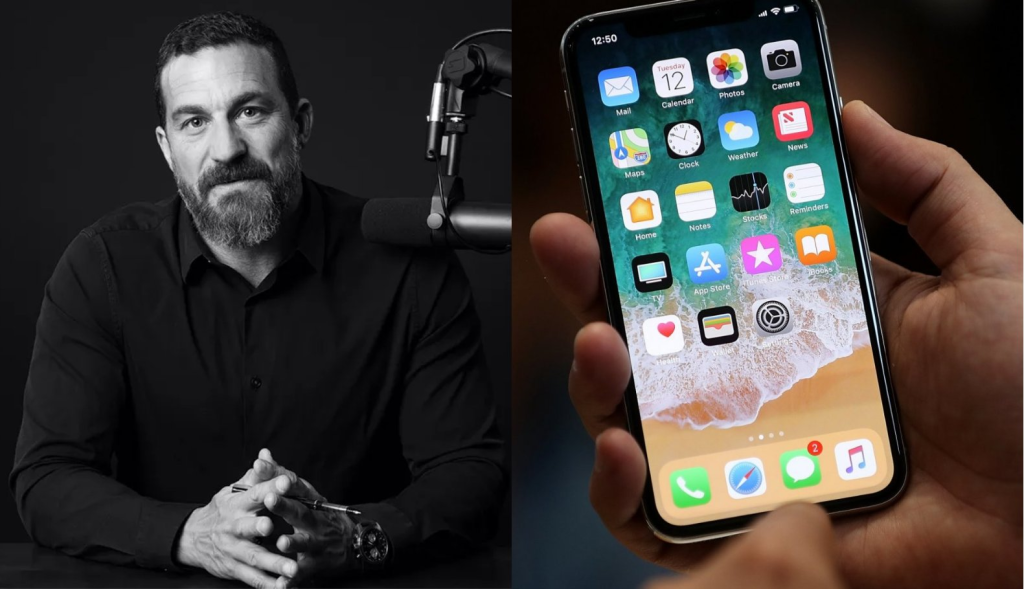Dr. Andrew Huberman’s Research Shows Smartphones Disrupt Motivation: Here Are His 7 Mental Hacks to Rewire Brain
In a groundbreaking revelation, Stanford’s top neuroscientist, Dr. Andrew Huberman, has announced a critical finding: smartphones are diminishing our brain’s ability to feel motivated. This discovery has sparked a conversation about how we can reclaim our natural drive in an increasingly digital world.

Here’s a comprehensive look at how millions are set to rewire their motivation in 2026.
The Smartphone’s Impact on the Brain
Dr. Huberman’s research indicates that our smartphones are not just communication tools but powerful influencers of our neural pathways. Each notification, scroll, and like on our devices triggers a dopamine spike, slowly eroding our baseline happiness. Think of dopamine as a bank account; every interaction with your phone is akin to taking out a loan, one that must be repaid with interest.
Layered Dopamine: A Modern Dilemma
When we engage with our phones during activities like exercise, socializing, or work, we engage in what Dr. Huberman calls “layered dopamine.” This phenomenon overshadows the natural rewards of these activities, making them seem less enjoyable over time. Research shows that this layered effect diminishes the brain’s ability to find pleasure in life’s simple joys, turning them into mundane tasks.
The Decline of Baseline Dopamine Levels
The constant influx of digital stimuli is lowering our baseline dopamine levels, which in turn affects our motivation and joy. Daily routines become less exciting, work feels more daunting, and eventually, we seek dopamine hits from our devices to feel any sense of pleasure or motivation.
However, there is hope in Dr. Huberman’s findings.
Rewiring the Brain for Natural Motivation

Dr. Huberman’s work has shown that our brains are remarkably plastic, capable of rewiring to enhance natural motivation.
Here’s how you can start this process:
1. Dopamine Baseline Reset
Each morning, our brain’s motivation system naturally resets. Exposure to 15-30 minutes of early sunlight can trigger this reset, providing a boost in motivation for 6-8 hours. Combining this with a short walk can double the effect, offering a simple yet powerful start to your day.
2. Strategic Phone Boundaries

To combat the layered dopamine effect, Dr. Huberman suggests setting strict boundaries with phone usage. Remove your phone during exercise, meals, and deep work sessions to let your natural reward system function properly. Also, establish phone-free zones for the first and last hour of your waking day.
3. Dopamine Stacking

Combining natural rewards can build stronger motivation circuits. Activities like pairing exercise with learning or deep work with music can create a more potent motivation boost. The key is to engage in activities that challenge you but are still within your reach.
4. Cold Exposure Protocol
Cold exposure can quickly reset the brain’s reward sensitivity. Start with 15-second cold showers, increasing by 5 seconds each day until you reach 2 minutes. This method provides a boost that can last several hours, enhancing your motivation.
5. Focus-Rest Cycles

The brain works optimally in 90-minute cycles of intense focus followed by 20-minute periods of deep rest. This isn’t just a break; it’s a recovery phase for your motivation system. Implementing this 2-3 times a day can significantly improve productivity.
6. Strategic Tech Breaks

To allow your brain to reset from digital stimulation, take 2-hour breaks from all screens and digital inputs weekly, gradually moving towards daily practice. This low-stimulation period helps in re-establishing your natural motivation.
7. Recovery Optimization
After intense focus sessions, take 20-minute deep rest breaks using techniques like slow breathing or body scanning. These practices cement the gains in motivation, ensuring that your brain recovers effectively.
Dr. Huberman’s insights reveal that while smartphones can hijack our reward systems, we have the power to reclaim and optimize our natural motivation. The science is clear: with the right strategies, we can enhance our brain’s ability to feel joy and drive without sacrificing performance.